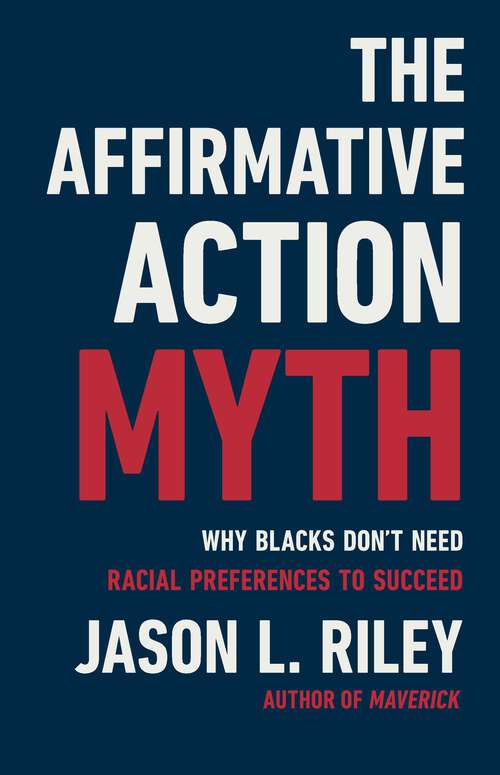
The Affirmative Action Myth: Why Blacks Don't Need Racial Preferences to Succeed
General non-fiction, United States history, Politics and government, Customs and cultures
Synthetic audio, Automated braille
Summary
From Wall Street Journal columnist and Manhattan Institute senior fellow Jason L. Riley, a "clear, concise, and humane account" (Christina Hoff Sommers) of how racial preferences have done more harm than good for black Americans After the Supreme Court ruled in 2023 that… the use of race in college admissions was unconstitutional, many predicted that the black middle class was doomed. One byproduct of a half century of affirmative action is that it has given people the impression that blacks can&’t advance without special treatment. In The Affirmative Action Myth, Jason L. Riley details the neglected history of black achievement without government intervention. Using empirical data, Riley shows how black families lifted themselves out of poverty prior to the racial preference policies of the 1960s and 1970s. Black incomes, homeownership, and educational attainment were all on the rise in the first two-thirds of the twentieth century and began to stagnate only after affirmative action became the law of the land, tainting black achievement with suspicions of unfair advantage. Countering thinkers who blame white supremacy and systemic racism for today&’s racial gaps, Riley offers a more optimistic story of black success without racial favoritism.